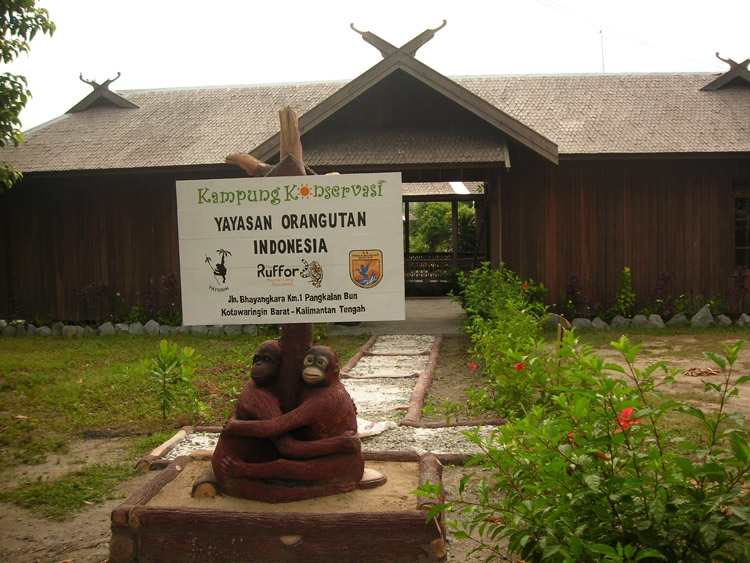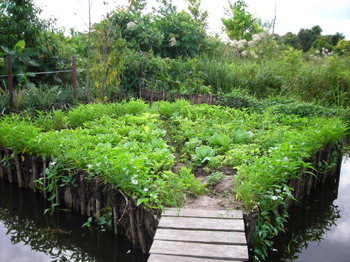Other than Kampung Konservasi's simple facilities such as the library, theatre, etc., we also use most of the area as sustainable agriculture demonstration plots. We grow and successfully harvest tomatoes, chilies, cabbages, string beans…all organic! We also keep fish and cows. We believe that if sustainable agriculture is done correctly, it can actually improve the degraded environment, protect native species, as well as eliminating current destructive agricultural practices, such as slash-and-burn.

Sustainable Agriculture Plots at Kampung Konservasi
Natural Fruit Fly Trap
Almost half of Kampung Konservasi’s ground used to be peat swamp; a few areas of this swamp were even as deep as grown man’s chest. Many local people believed that nothing can be done in peat swamp areas, and we already proved that we can farm fish very successfully there, using very simple materials to make the ponds such as bamboos and sand bags. We also bought a couple of cows because they are the best compost producers, and we can also sell them at the end when they grow bigger.
Below Organic Compost - the secret to our success!
Aquaponic Plots - Fish pond around the island where vegetables are growing.
Kampung Konservasi used to be a barren land it is now a thriving and lush place. We have encouraged the return of insect, bird, reptile and amphibian species. Through our agricultural practices soil and water quality has increased. In addition to growing vegetables we have also planted more than 100 tree species, ranging from fruit trees (mango, durian, rambutan, guava, papaya and pineapple) to Bornean endemic hardwood trees (ulin, gaharu, agates, and rattan, especially the local species). All plants have been labelled with signs showing the local, Indonesian, English and Latin names and information about the importance of the plant or its useful properties.
Nursery and seedlings

Kampung Konservasi Entrance Sign
Everything is to demonstrate to the local people and farmers that sustainable agriculture is a very promising income-generating activity for them to do. We are proud to report that individuals and groups have already adopted our agriculture methods in their own gardens and areas.
Terima Kasih,
Sally (Yayorin)








